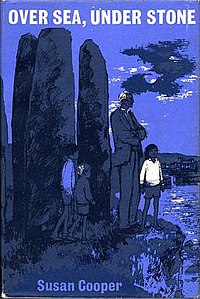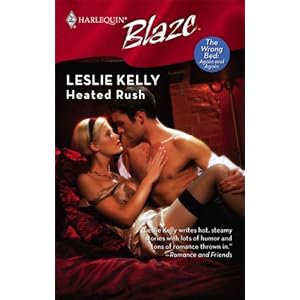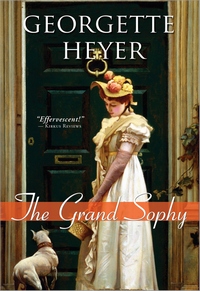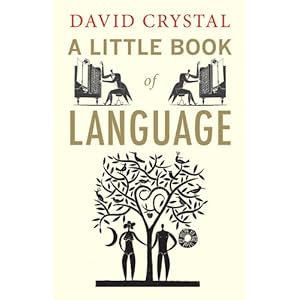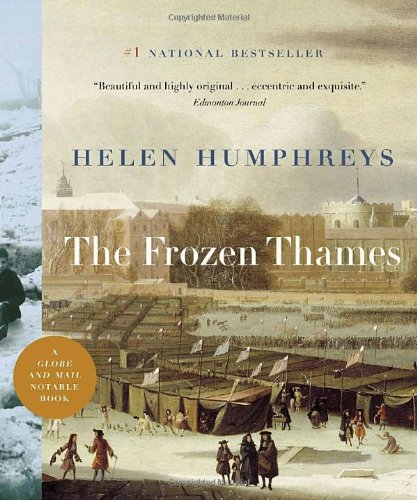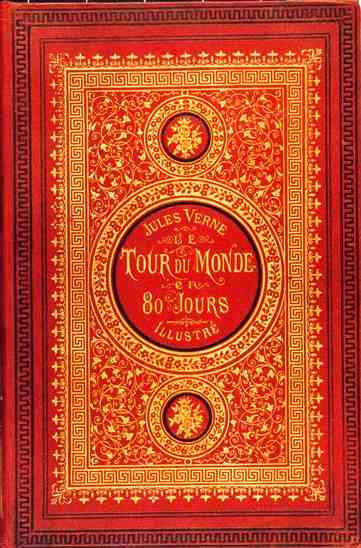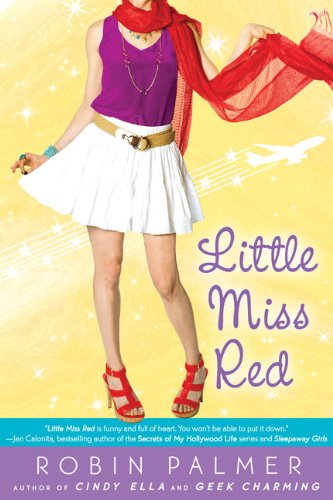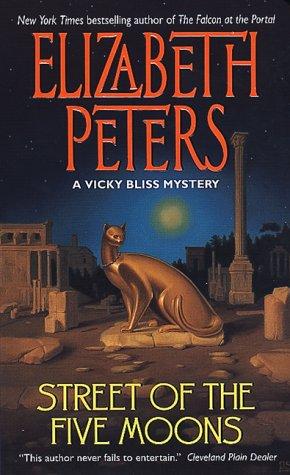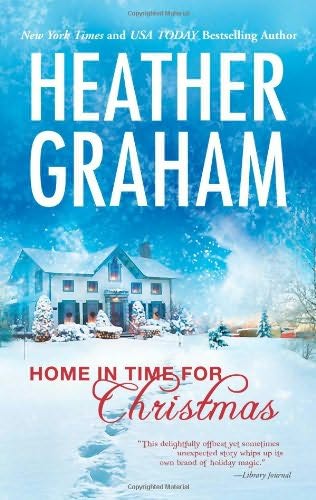 The title: Home in Time for Christmas
The title: Home in Time for Christmas
The author: Heather Graham
Publication: Mira, 2009
Got it from: MC, Xmas 2009
*THIS REVIEW CONTAINS SPOILERS*
I know - a Christmas book in May? What was I thinking? Actually, we've been having a heat wave here with 36 degrees Celsius being the high (that's oh, about a million degrees Fahrenheit for you American readers). I thought reading about snowstorms might cool me off a bit.
This book had a very promising premise. Jake Mallory is an American Patriot about to be executed for treason by the British. Just as the noose is about to drop, his adopted sister, who practices witchcraft, arrives and says a spell that makes him disappear. Jake lands in the middle of a Massachusetts road and is nearly run down by the story's heroine, Melody Tarleton. She takes him home to her kooky family and they have to figure out what to do with Jake.
My friend, who gave me this book last Christmas, wrote, "feel free to despise it," worried that the story's far-fetchedness would bother even my time-travel loving self. So I'm going to take her up on her offer, though not because the story is far-fetched - of course it is, why would anyone buy a time-traveling soldier book thinking otherwise? I despise it because it sucks. Hardcore. I usually think of nice things to say about books I don't like, but I just can't for this one. How do I despise it? Let me count the ways:
10. Poor copy editing. This may or may not be poor Heather Graham's fault, but since she's going to take the flack for the rest of my criticism, I'll let her off the hook. Maybe this book was rushed out in time for the holiday season, but I have never seen so many typos in a commercially printed book in my life. Sentences where key words were left out, the dreaded it's/its mixup and too many others to count marred my reading experience.
9. Poor editing, period. This was the read deal-breaker for me. Again, this may be because the book was rushed out for the holidays, but nobody - not even mega bestselling authors with years of publishing history - should be let off the hook from close editing. If I didn't have the finished book in my hands, I'd say this was just a rough draft. The narrative flow was awful, jumping here and there all over the place without any semblance of coherence. It was as if I were reading pieces of the author's first draft, before she had a chance to link scenes together.
8. Wooden dialogue. The dialogue in this book had all the finesse of an eighth grade short story competition. Now, I don't have any serious writing classes under my belt, but even I know that you can't just keep saying "he said/she said." It's amateurish. Even, "he pontificated, she burbled, the thing bloviated" is a more creative approach. And the way people spoke in this book - ouch. It sounded so unrealistic, so forced, so expository, that I cringed the whole way through. Just listen to this "bantering" between Melody's parents as an example:
"We have been married since time began," he said with a sigh.
She was no longer completely concentrating. She gave him a good jab in the ribs.*
"Ouch!"
"Speak for yourself, my love. I am not that old."
"Hmm."
"And, my dear husband, you do recall that you might be considered an alchemist."
"Right. Just like Merlin. Where's the sword? I can pull it out of a stone."
See how kooky they are? See how they playfully banter with each other? See how the author is forcing them to be cah-razy and making no sense at all?
7. Poor characterization. Every single character in this book is two-dimensional. Jake is (I think) supposed to come across as mysteriously enigmatic, but really, I think it's because the author couldn't be bothered giving him a personality other than "random Patriot" and he's really just very boring. Melody is gratingly annoying, always flying off the handle at her family. Her "trait" is that she's an artist, which I didn't realize until 3/4 of the way through the book, when we learn that Jake is teh one, not her boyfriend Mark, because he recognizes her true artistic spirit. At one point, Jake realizes Mark is not right for Melody because he doesn't recognize that she's "so much more" than Mark thinks she is. Really? I think Mark has her spot on.
The rest of Melody's family can be lumped into a sort of, "oh, you wacky people, you" category. Her mother is a sort of hippy-dippy free spirit (gag) who believes in women's freedom but nevertheless spends the whole book slaving away in the kitchen and smothering her family. Melody's dad is an absent-minded blob who does - well, I'm not sure what he does, but it's vaguely science-y. He contributes very little to the story. Melody's brother bickers with her like they're both seven and is creepy enough to have a thing for strippers, which is what he wants to introduce Jake to as part of his twenty-first century experience. Then there's Mark, Melody's boyfriend, who serves as Jake's foil because he's so uptight and old-fashioned and...oh, wait. Jake's like that too. Never mind.
6. Cliches ahoy! I've already mentioned the kooky family. How about the lovable deformed pets? The overprotective brother? (you actually get two in this story!) The magical wishing well? The old diary that provides all the answers? The notes sealed in the fireplace? The "years later" epilogue where everybody finds true love, there's a passel of kids named after other characters and everybody's gotten successful and found their true calling?
5. Serious anachronisms. Other reviewers have pointed out that Jake mentions the U.S. constitution even though he time-traveled before it was even written, but I won't touch that. My main problem is Jake's handling of being in the twenty-first century. I'm reminded of a line from
Bill and Ted's Excellent Adventure (a movie that deals with time travel in a much more fun, creative way) when Ted, after hauling historical figures through time, commends Socrates for handling time travel, "with the greatest of ease." Jake understands and accepts everything so completely that I almost shrieked, "Are you
serious!?" In mere days, he talks 21st century slang and words like cell phone, the Internet, etc. roll off his lips easily. He's so adept at picking up our language that his sister, still living in the 18th century, starts to say words like "seriously," too. Amazing! He also instantly knows how to run appliances and groom himself 21st-century style. What a guy.
4. Where's the good times? Think of all the fun you can have writing a story about somebody from the Revolutionary War arriving in the 21st century, and you can bet Heather Graham didn't write about it. Jake's "education" in modern times consists of him watching lots of DVDs like
Full Metal Jacket and learning words like "dickhead." Yes, you heard that right. When Jake's announced he's learned this, Melody's mother says, "Wonderful. We've taught him all the right stuff." I found this to be the most unintentionally hilarious line in the book. Old Jake would have probably been better off if he'd dropped into, say, the middle of Siberia rather than with these nuts.
3. Mystical mumbo-jumbo. A book can have magic, but it has to have rules. A book can beat you over the head with a moral message, but it has to figure out what it's saying first. This book did neither.
Despite people hurling back and forth through time like paper airplanes toward the end, it was never clearly explained how this all worked, despite the fact that Melody's dad's work supposedly helped it all. It was some sort of combination of black holes, electo-magnetic waves, magic herbal potion and rose petals. Look, everybody knows if you're going to time-travel only one thing does it, like a phone booth or a DeLorean or a hot tub. Not five!
And what the hey was this book trying to say about religion? It was all over the place. Melody's mom went on and on about acceptance and understanding and they all attended some sort of Wiccan all-inclusive party, but the characters kept mentioning Jesus and there was a mystical priest thrown in for good measure. With no overarching theme or message, all I could get from this book is love your family, be true to yourself, there is no "I" in we, accept all religions, worship God, women should work outside the home except when they have to cook for their families, women should be traditional and stay home and make lots of babies, love each other for ourselves, miracles happen at Christmas, if you wish for something hard enough it can come true, don't choose that traditional man choose the other one, love your brother even when he's an asshole, bring home stray things you find on the side of the road, the world hasn't changed in two hundred years except it has....I could go on, but I'm afraid I'd start making as much sense as this book.
2. It's weird. That's the one word I can use to sum up this book, and I can't think of a better one. It's like something you would see a night you were up sick and couldn't sleep and you turned on the TV at 5 am and this was on, and you watched it and got a little creeped out and then afterward you're never quite sure you saw it or it actually existed because you can't find it on IMDB.
1. It's boring. This really saddened me. It wasn't even so bad it was hilarious and entertaining, it was just bad. About halfway through I kept wishing it would end. It wasn't even that long but it felt way too long. I wouldn't have finished it except that I felt like I had to because a friend gave it to me.
Usually I end my unfavourable reviews by saying, "I didn't like it, but here's why you might." But I can't. I really can't recommend this book to anybody and I wish to warn you away from it right now. Please save yourself or your loved one the $20.00 and stay as far away from this book as possible. If you value your reading time (and I know you do) avoid
Home in Time for Christmas because there is nothing worthwhile about this book. I am giving it a D, and it's spared the F only because I still like the concept.
*This is an example of the bad writing right here. If she really wasn't concentrating, she wouldn't have heard him and wouldn't have elbowed him in the ribs. But don't expect this book to make that much sense.

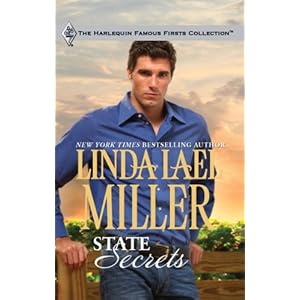 And you shriek to your husband: "It's him! It's the same guy!"
And you shriek to your husband: "It's him! It's the same guy!"